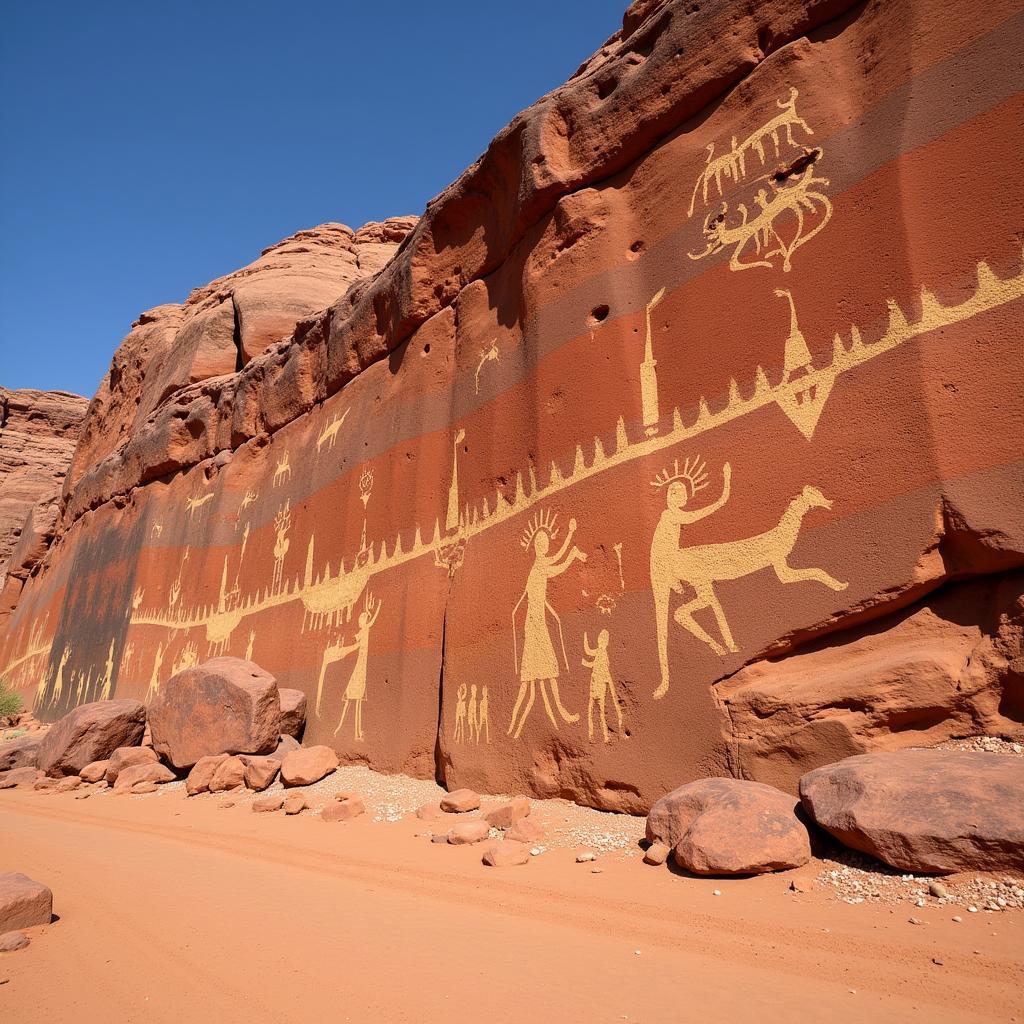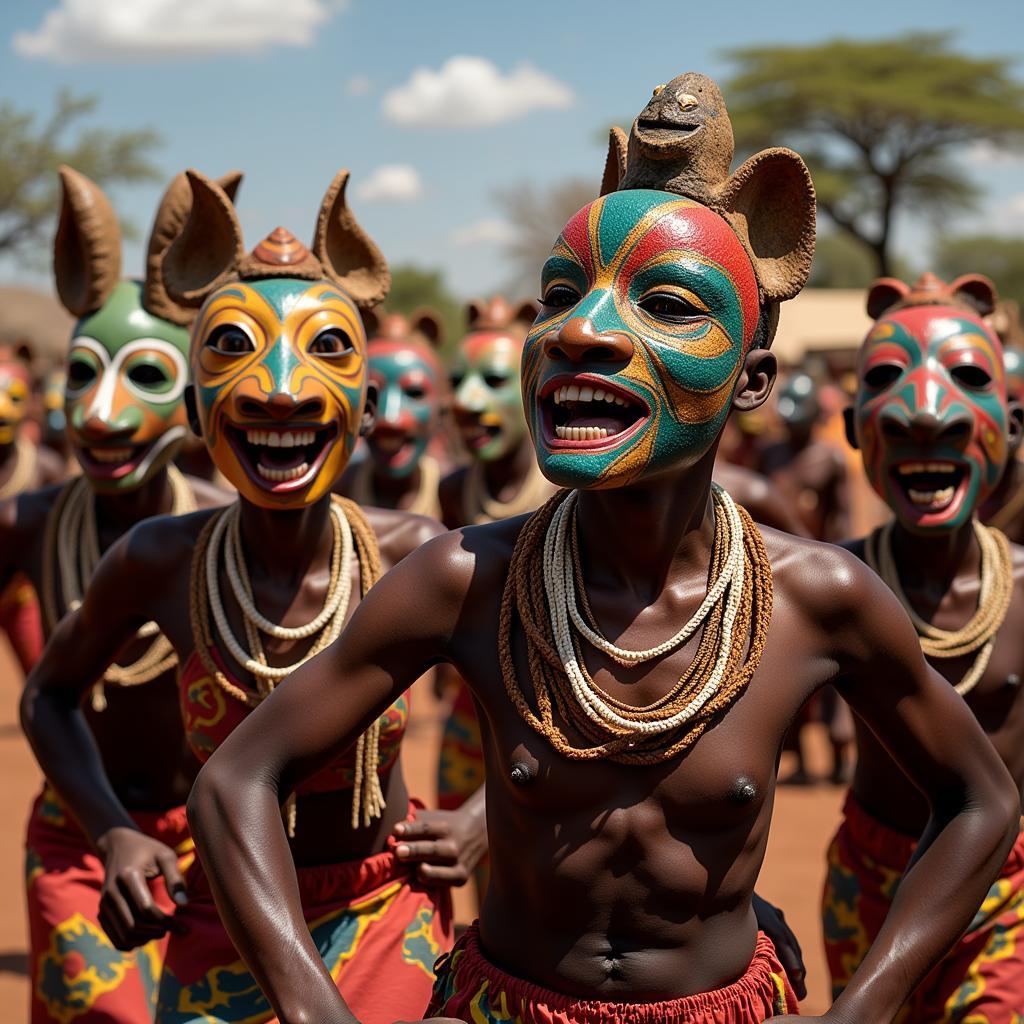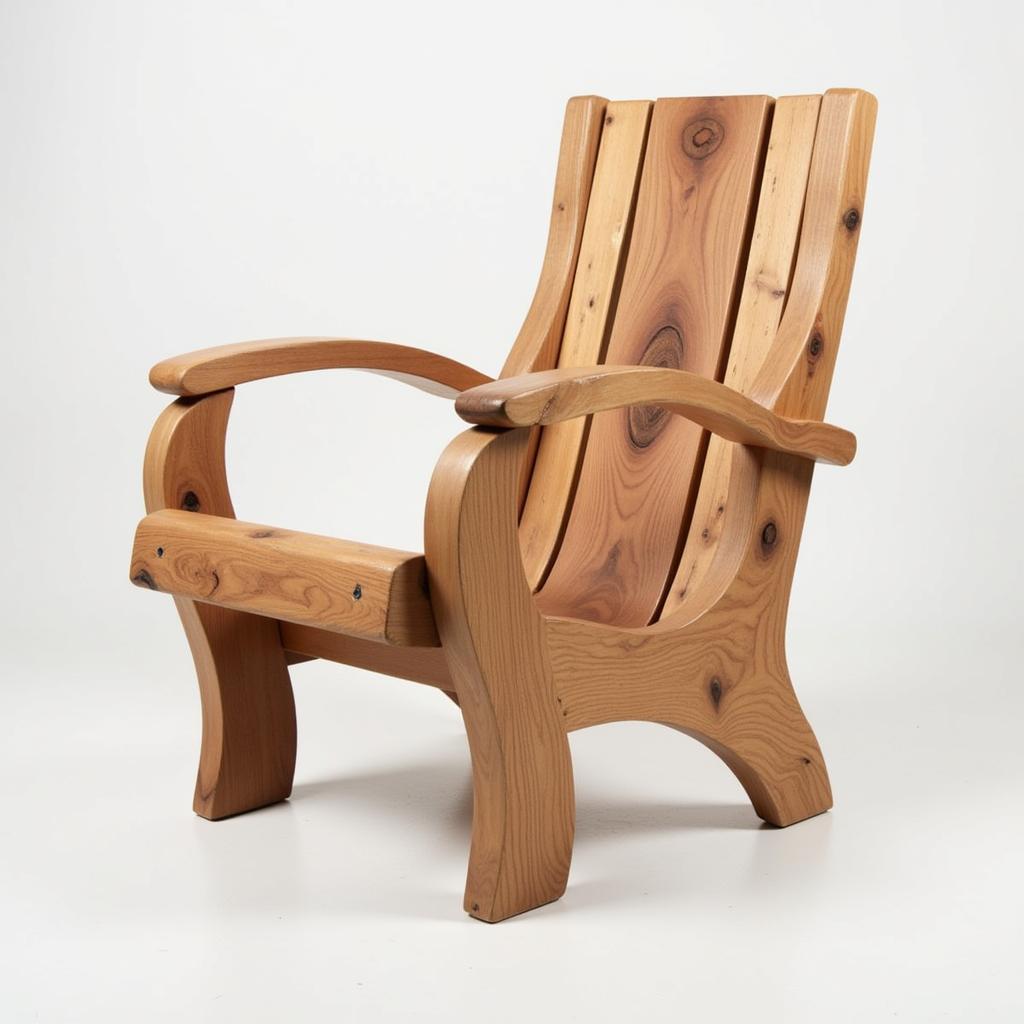A Vibrant Canvas: Exploring the History of African Art Paintings
African art paintings offer a captivating glimpse into the continent’s diverse cultures, traditions, and historical narratives. More than just aesthetically pleasing, these artworks are imbued with symbolism, spirituality, and social commentary, reflecting the richness and complexity of African Life across the ages.
Early Expressions: Rock Art and Ancient Traditions
The history of African art paintings stretches back millennia, with some of the earliest examples found in the form of rock art. Scattered across the continent, these ancient paintings provide a fascinating glimpse into the lives and beliefs of prehistoric societies. From depictions of animals and hunting scenes to abstract patterns and symbols, rock art offers valuable insights into the rituals, beliefs, and daily lives of Africa’s earliest inhabitants.
 Ancient African Rock Art in the Sahara Desert
Ancient African Rock Art in the Sahara Desert
The Rise of Kingdoms and Artistic Patronage
As early African civilizations flourished and powerful kingdoms emerged, art became increasingly intertwined with the ruling elite and religious institutions. In ancient Egypt, for instance, elaborate tomb paintings and hieroglyphics served not only as decorative elements but also as powerful expressions of religious beliefs and the pharaoh’s authority. Similarly, the kingdoms of Nubia, Kush, and Axum developed distinctive artistic styles, evident in their pottery, sculptures, and murals.
Diverse Styles and Regional Influences
Across the vast expanse of Africa, a myriad of distinct artistic styles evolved, each shaped by the unique cultural practices, environmental influences, and historical experiences of its people. In West Africa, the Yoruba people are renowned for their intricate wood carvings and vibrant masquerade masks, while the Ashanti of Ghana are celebrated for their exquisite gold weights and kente cloth designs. Meanwhile, in Central Africa, the Kuba people developed a distinctive style of raffia cloth paintings known for their geometric patterns and complex symbolism.
 Traditional African Masks in a Ceremony
Traditional African Masks in a Ceremony
Colonial Encounters and Evolving Artistic Expressions
The arrival of European colonial powers in Africa had a profound impact on the continent’s art scene. While some traditional art forms were suppressed or marginalized, others were adapted and transformed, incorporating new materials, techniques, and themes. This period witnessed the rise of new genres, such as portraiture and landscape painting, often influenced by European artistic conventions.
The Birth of Modern African Art
The mid-20th century marked a turning point in the history of African art, as artists across the continent sought to reclaim their artistic heritage and forge new forms of expression that reflected their post-colonial realities. This period witnessed the emergence of renowned artists such as Ben Enwonwu, Ibrahim el-Salahi, and Gerard Sekoto, who challenged existing artistic norms and paved the way for a vibrant and internationally recognized modern African art movement.
African Art Paintings Today: A Global Phenomenon
Today, African art paintings continue to captivate audiences worldwide, with contemporary artists pushing the boundaries of creativity and exploring a wide range of themes, from identity and politics to social justice and environmental concerns. Through their art, these artists are not only sharing their unique perspectives with the world but also challenging stereotypes and fostering cross-cultural dialogue.
Conclusion
From the ancient rock art of the Sahara to the vibrant canvases of contemporary artists, the history of African art paintings is a testament to the continent’s enduring creativity, cultural diversity, and resilience. By exploring these diverse artistic expressions, we gain a deeper understanding of Africa’s rich history, cultural heritage, and evolving identity in a globalized world.

